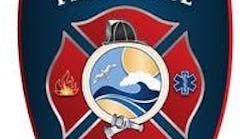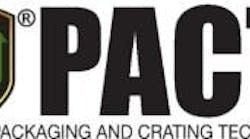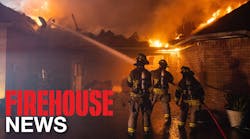“Legend: a notable person whose deeds or exploits are much talked about in his or he own time.”— Collins Dictionary
I am a legend according to the National Fire Heritage Center. I also am dyslexic, and I failed my District of Columbia Fire Department (DCFD) prohibition exam in the winter of 1973.
Success is easy to talk about. Failure often isn’t discussed, but it might provide the most valuable lessons that affect who we are. This is true for me, and that is why I want to share this story.
Growing up
As a dyslectic, I struggled in school. Reading and spelling were a mystery. My mother told the school to have me repeat the third grade, because I couldn’t read. Mom didn’t care that I had the highest IQ in the class.
I learned the construct of failure at a very young age. Closely connected to that failure construct are the shame and fear constructs.
To this day, I couldn’t pass a middle school spelling test and most likely would sit down after the first round of an elementary school spelling bee.
In the sixth grade, I was sent to phonics classes. In the seventh and eighth grades, I got A’s and B’s in woodshop. In eight grade, I received a science award and the Most Progress award—a check for five dollars, which I framed until the school told Mom to cash it.
I survived high school, thanks to accounting, business and woodshop classes, and a sense of success came for the YMCA, where I taught swimming and judo.
The high school guidance counselor told my mother that I wasn’t college material, but she didn’t believe that. We found a small business college that let me in. I went from a C student in high school to the dean’s list in my first year of college. I still was dyslexic, but the institutional system changed: No more spelling tests or reading out loud.
The digital age has helped me, but I can be stumped by spell check. I don’t read out loud until I have read the material several times to myself. Rote memorization also is a challenge. When I’m sent to the store, I get a written list if more than three items are needed.
By chance, I walked into the fire service in 1970. It was a perfect fit for me: tools, equipment, apparatus and physical skills. Reading and writing weren’t a high priority. I became a career firefighter in January 1972 in our nation’s capital—the dream job.
If you ever took a National Fire Academy class for which I was the instructor, you know that spelling didn’t count in my classroom. It was almost impossible to read what I wrote on the easel or the notes that I wrote to help students with their Executive Fire Officer applied-research projects. Students learned to record me.
Failing the exam
In regard to the DCFD probation exam, the deputy fire chief of operations who tested me didn’t ask me to spell or read out loud. His job was to test me on my memorization of 100 fire alarm box numbers, their location, the driving route to them from my company and the four closest fire hydrants, in addition to 50 short streets, alleys and target buildings.
In preparation, I did this without a flaw for months, sitting in front of Lt. Donald A. Condatore, the station captain and my battalion chief. I would hand them my stack of 3 x 5 index cards. The box number was on the front, with the address, route and hydrants written on the back. I would
start with the first card and precede though the pile and then recite the 50 additional locations. No problem.
One cold, rainy night shift, my lieutenant got the call to send Pvt. B. A. Clark to the deputy chief’s office for his probationary test. I put on my dress uniform and drove to the DC’s office. I never met him before, and he didn’t know me. After a salute, I sat down and handed him my stack of cards. He took the deck, pulled a card from the middle of the deck and read the number that was on the card. My mind went blank, I never was tested with random box numbers. After about five attempts with random numbers thrown at me, I tried to explain how I memorized the deck of cards and demonstrated by beginning with the first few cards. He wasn’t impressed. I was dismissed 10 minutes after I arrived.
The ride back to my station was agonizing. My fire service career was over. I was a failure. I was an embarrassment to my lieutenant, my captain, my company and my battalion. I had let them all down.
When I got back to the station, Condatore was sitting at the watch desk waiting for me. I must have look like a beaten dog. I walked up to the desk without speaking. He looked up at me and said, “Congratulations. You passed.” The look on my face was confusion and disbelief. The lieutenant continued, “The DC called me and said he failed you, because you did not know the material. I told him that was not a good idea, because you graduated No. 1 from recruit school, are a backup wagon driver and are a good fireman. So, he decided to pass you.” I said “Thanks, Lou,” but I was in a state of shock, like a drowning person who is grabbed by a lifeguard and gets his first breath of air.
I never thanked Condatore well enough, considering how my life would be different today if he didn’t intervene on my behalf. Even the deputy chief didn’t have to change his mind and pass me, but he did.
Beyond the norms
Institutions create norms, rules and standards, because there would be chaos without them. If you become good at following, applying and enforcing them, you get to be in charge and move up the organizational ladder. Real leadership is seeing beyond the norms, rules and standards by recognizing the potential in something or someone that doesn’t fit in today.
Who we are today is the result of many people and events in our life. Some we know, but most we are unaware of. We all have strengths and weakness. We all are capable and handicapped in some way. I am grateful for the helping hands that I was given along the way and the challenges that helped to make me better.
Honor your past successes and the failures. Celebrate the precious trophies and the last-place finishes. Believe in the future, because that is how you make your own legend and help to put other people into the Hall of Legends, Legacies and Leaders. Just as Lt. Condatore did. Thanks, Lou!
_____
Postscript: Thank you to the National Fire Heritage Center for installing me into its Hall of Legends, Legacies and Leaders. As well, congratulations to my fellow 2021 inductees. Many have been friends and colleagues for decades. Some are new names to me, but the fact they are on the list means that they touched my career in some way at some time, and I am grateful. Finally, to be on a list that includes Benjamin Franklin and the legends who mentored me is humbling.
In conclusion: It is my experience that the fire service attracts dyslectics. Ours is a psychomotor discipline. Writing and reading are not a top priority. Few, if any, rookie firefighting schools have writing as part of the curriculum, whereas every rookie police academy includes writing reports. “Dyslexia in the Fire Service” would be a valuable research project.
_____
Dyslexia resources:






